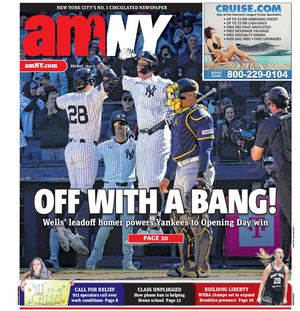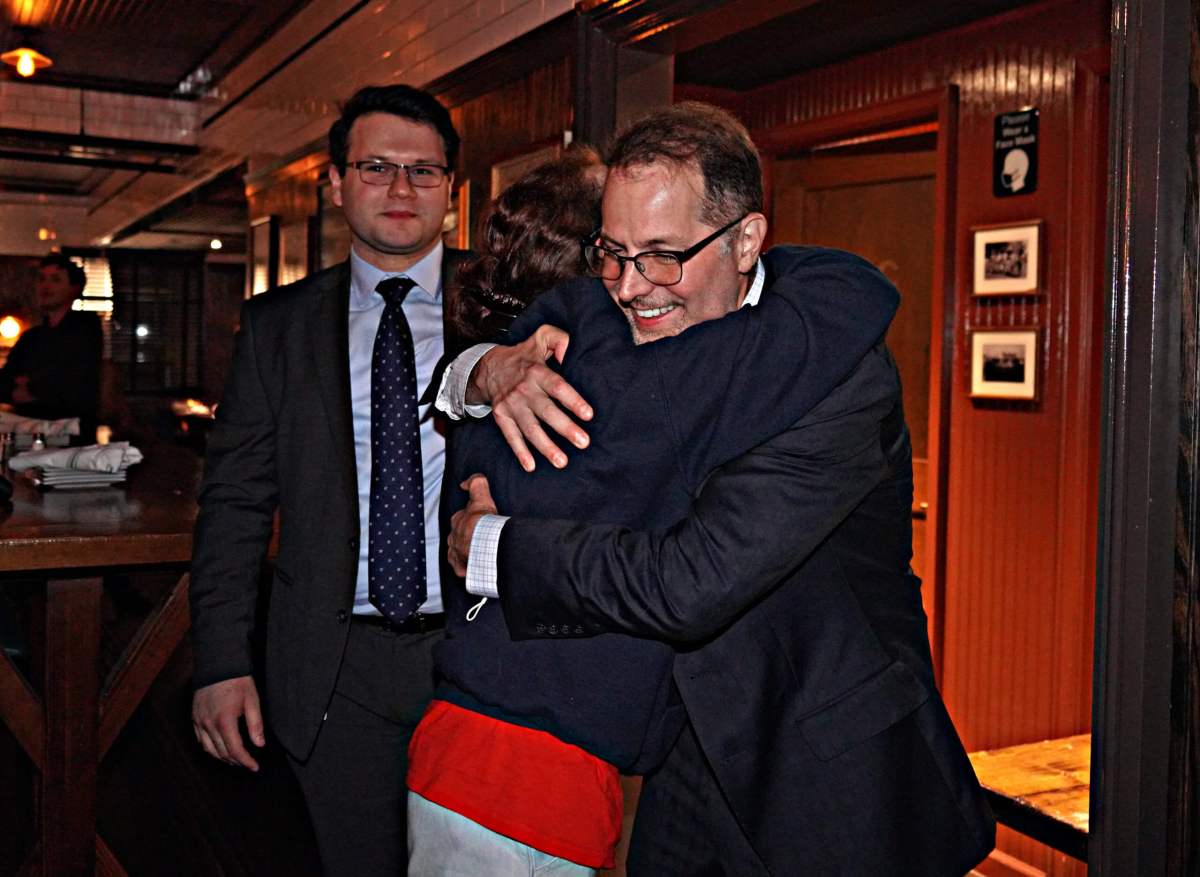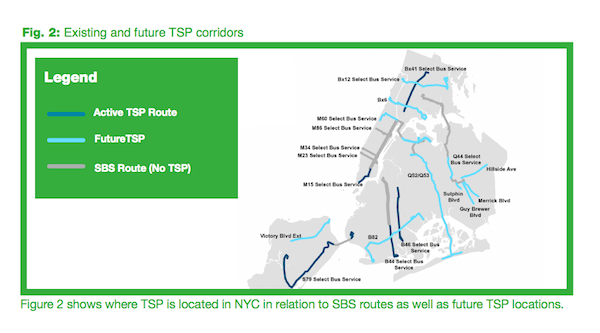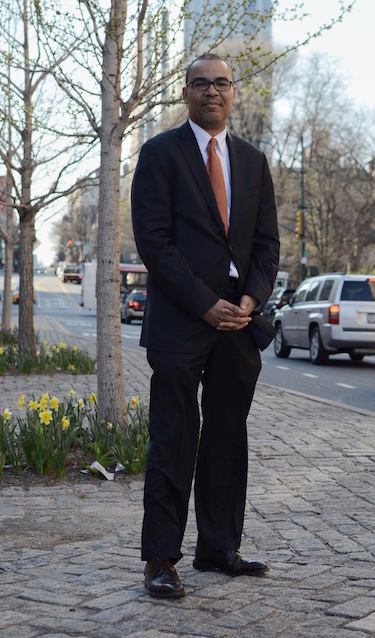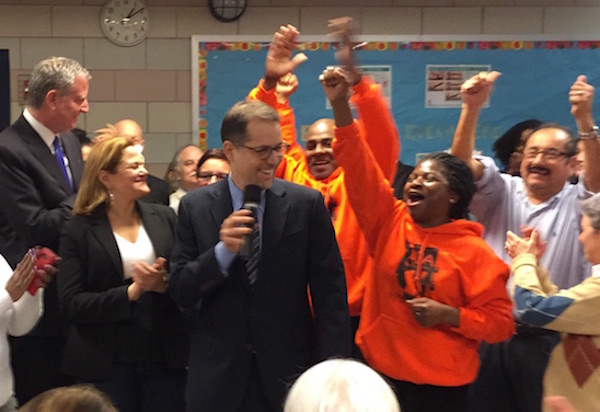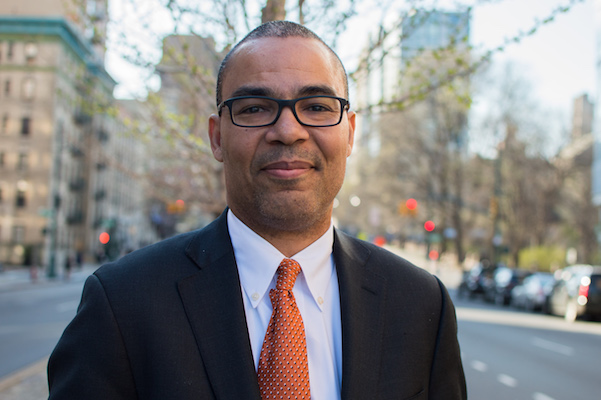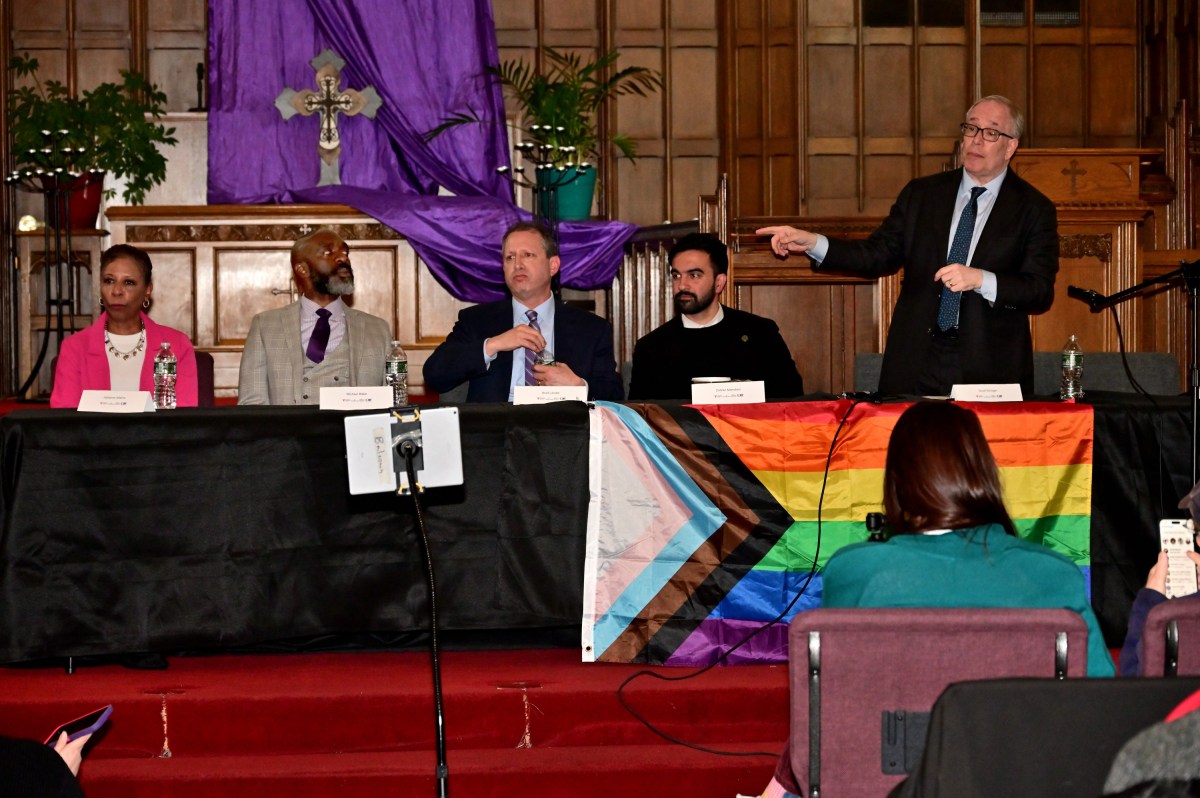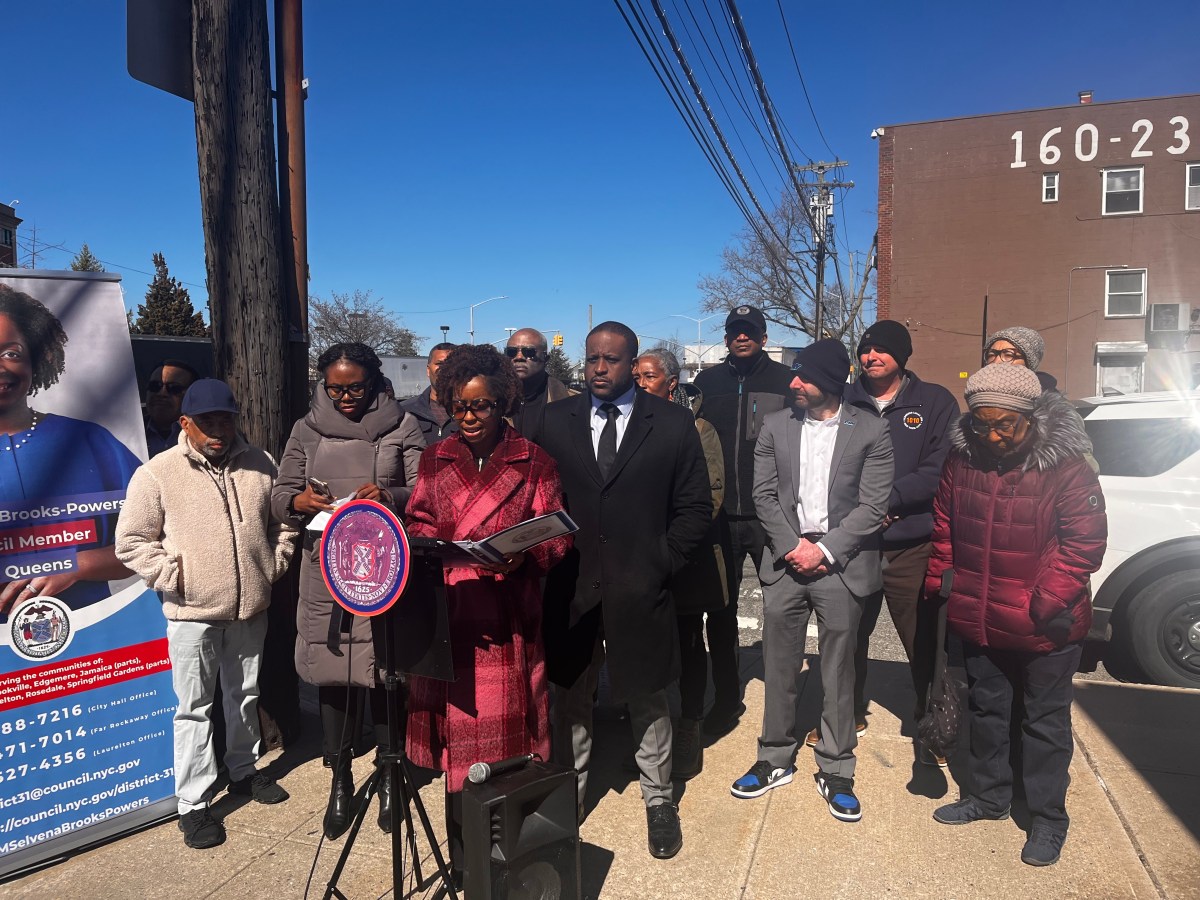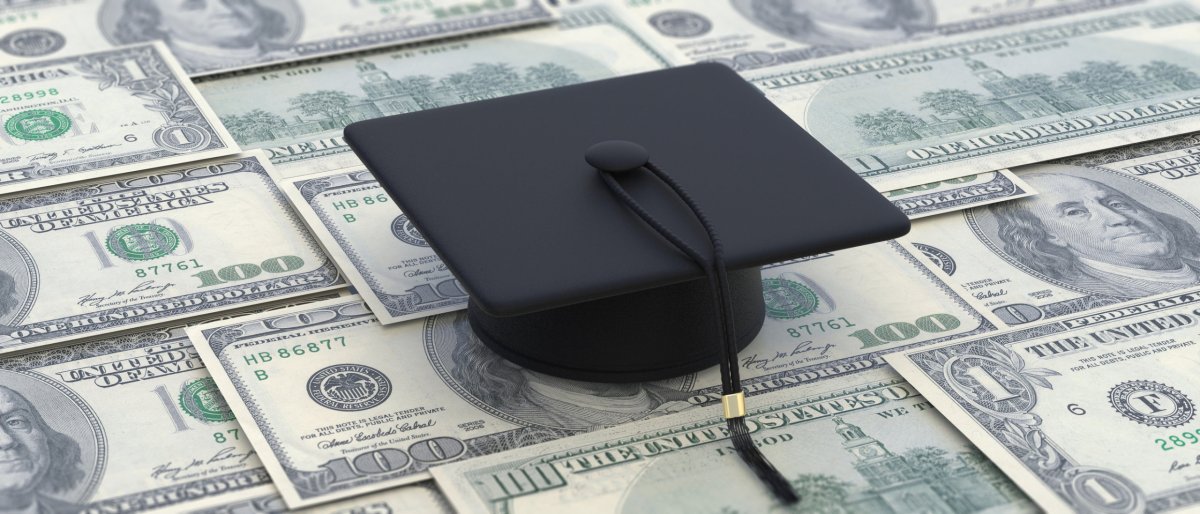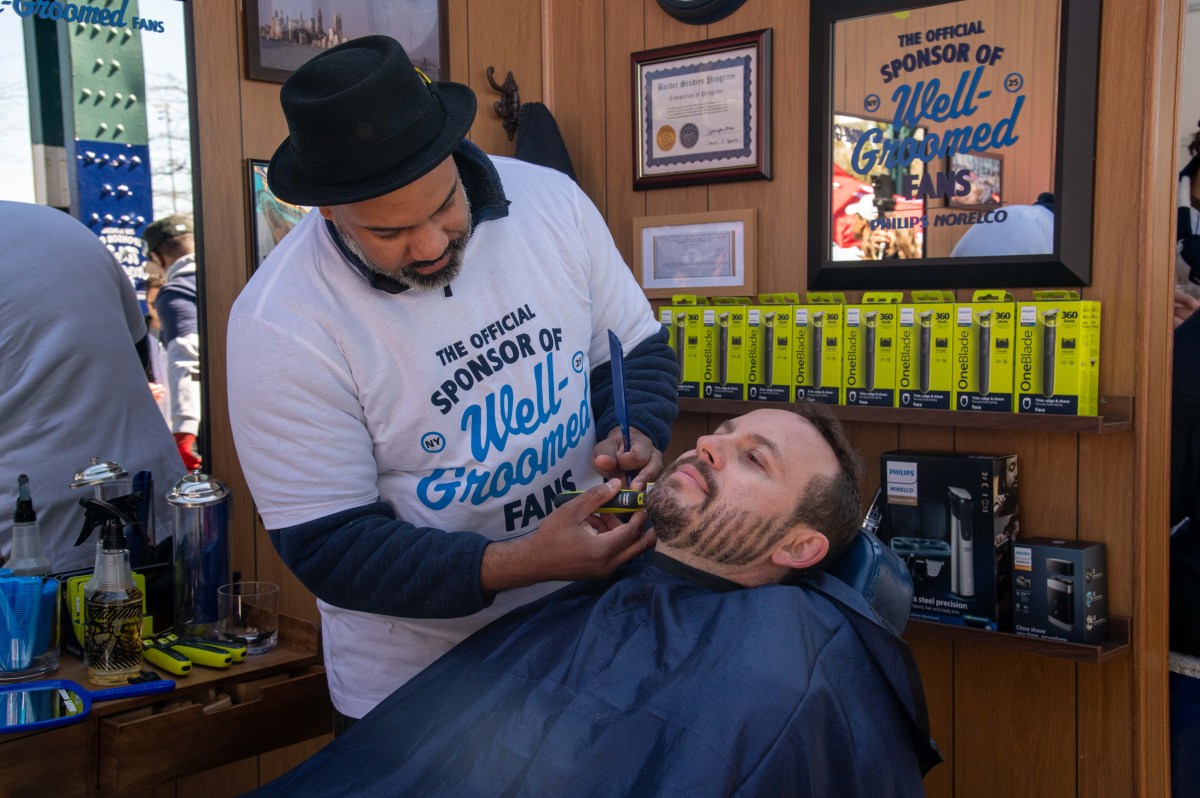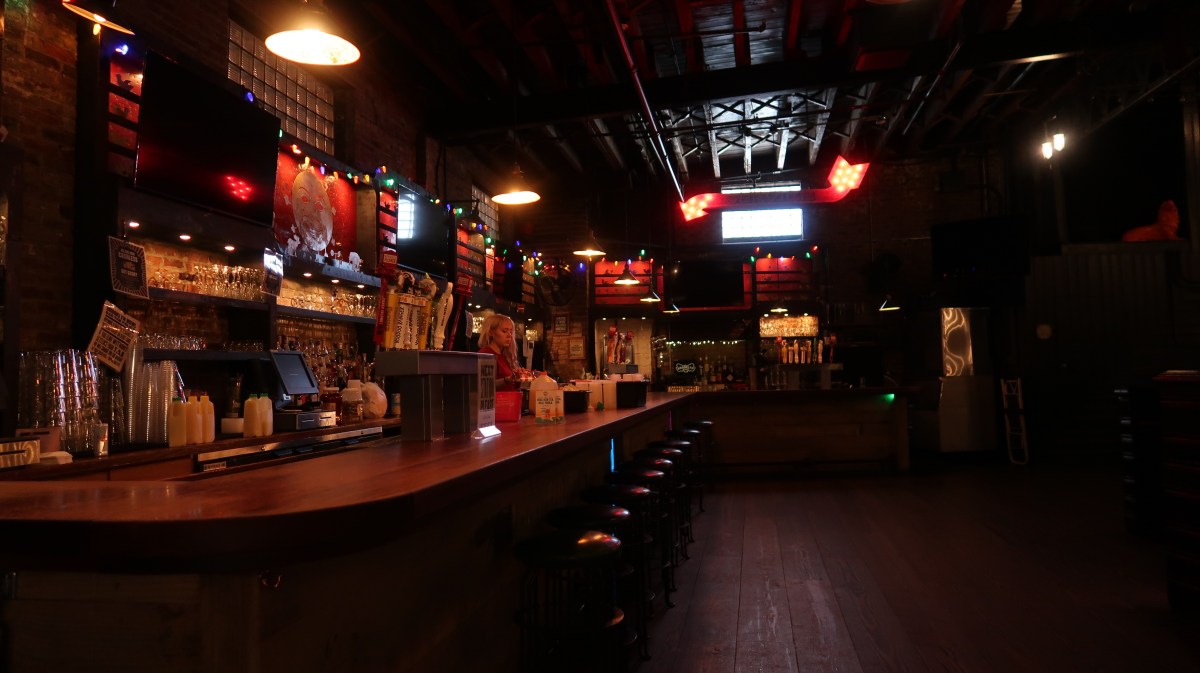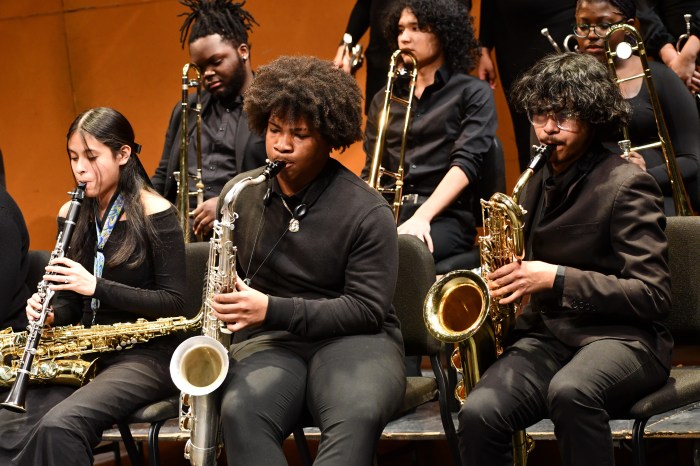Manhattanites elected City Councilmember Mark Levine to be their next borough president.
With 90.4% of scanners reporting, Democratic candidate Levine won 84.5% of votes on Tuesday beating two opponents, Republican Louis Puliafito, who took home 13.4% of votes; and Libertarian candidate Michael Lewyn who earned only 1.9% of votes cast.
Levine has represented the New York City Council’s seventh district, which covers the Upper Manhattan neighborhoods of Washington Heights, Morningside Heights, Hamilton Heights, Manhattanville, Manhattan Valley, and the Upper West Side, since 2014.
Before being elected to the City Council, Levine was a middle school math and science teacher and went on to found the Neighborhood Trust Federal Credit Union.
Levine won the Democratic spot for borough president during a competitive primary election this summer where he faced off against rival candidates state Senator Brad Hoylman, a former member of now disgraced Governor Andrew Cuomo’s administration Lindsey Boylan, Community Education Council member Kim Watkins, fellow City Councilmember Ben Kallos and Elizabeth Caputo.
For most of the June primary election night, Levine was neck-and-neck with Senator Hoylman ultimately beating him by three points. The use of rank-choice voting during the primary meant election results would not be fully updated until early July. Once the New York City Board of Election released the result of the election’s seventh round, Levine was declared the official winner beating Hoylman by 7.4% of the vote.
Levine will replace current term-limited Borough President Gale Brewer and although the role is largely ceremonial, Manhattan’s unofficial cheerleader will have their work cut out for them as the city continues to make its way out of the COVID-19 pandemic.
But the borough president does hold real power in land use and development projects as a key player in the city’s Uniform Land Review Process. Community boards review all requests for changes in land use as part of the ULURP process and then submit the application as well as their own recommendation to the Borough President.
The borough president has about a month to review the proposed project and give his or her recommendations to the Department of City Planning. In addition, the borough president can impact the city by nominating some community board members.
As votes rolled in, Levine and his campaign team watched results at Harlem Tavern, a bar and restaurant at 116th St. and Fredrick Douglas Blvd, alongside members of Manhattan District Attorney Alvin Bragg’s campaign.
Shortly after the BOE reported Levine’s massive lead in the election, Lieutenant Governor Brian Benjamin joined the election celebrations and spoke to Levine’s character, commending him for his work as chair for the New York City committee on health during the pandemic.
“He established himself as one of the foremost thinkers on how we should move forward on COVID. He was very clear that we do everything we can to get everyone vaccinated and he was not afraid to call out anyone who was getting in the way,” said Benjamin. “ That is the kind of leadership Mark has shown over his career.”
“We didn’t know the storm that was coming. The pandemic, all the profound injustice that has been revealed and exacerbated over the past year,” said Levine, right after praising Bragg for being extremely qualified for his new position as Manhattan district attorney. “This has only made our fight more urgent…it is on us now to deliver for progressive policies.”
